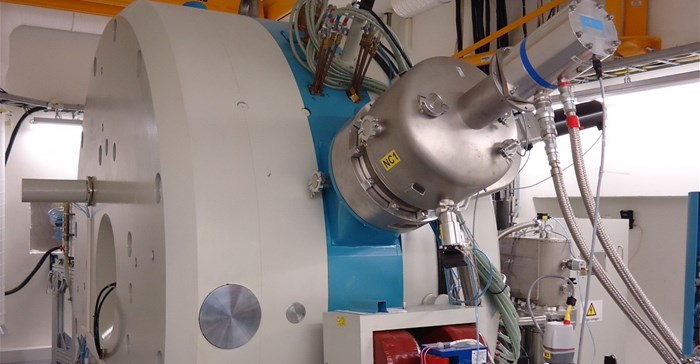
Related






Cervical Cancer Awareness Month | Roche’s Merilynn Steenkamp: Screening key to elimination
Merilynn Steenkamp 22 Jan 2026
Top stories






More news


Marketing & Media
Ads are coming to AI. Does that really have to be such a bad thing?














The main area of cooperation identified in the document is that of nuclear medicine and particularly cancer treatment in Africa and abroad. With this in mind and taking note of recent advancements in the sector, Rusatom Healthcare and Necsa are planning to partner in building two innovative solution reactors in South Africa. These are small scale and relatively inexpensive reactors that are designed specifically for the cost-effective production of nuclear medicines.
The parties also plan to construct a commercial cyclotron in South Africa to further increase the production capacity of nuclear medicine in the region.
Necsa is recognised as a world leader in the production of nuclear medicine and exports these lifesaving radiopharmaceuticals to over 60 countries on a daily basis, with an annual turnover of in excess of a billion rand. “Nuclear medicine is the most effective method in the early detection of cancer. The earlier cancer is detected the more likely it is to respond positively to treatment and this generally results in a greater probability of recovery,” says Phumzile Tshelane, CEO of Necsa.
“Nuclear medicine not only saves lives, but also generates a large revenue for South Africa. Necsa is looking forward to increased production and the maximisation of profits for the country,” he says.
Expansion of nuclear medicine and early detection of cancer is directly in line with the target set by President Cyril Ramaphosa at his State of the Nation Address earlier this year, to fight the dreaded disease. The parties also intend to roll out cancer treatment centres across the African continent, South Africa and the Russian Federation.
“Sadly only a small percentage of the African population have access to this lifesaving technology, something that we aim to change. This will be done with the collaboration of local government, business and medical entities in each country,” Dr Kelvin Kemm, chairman of Necsa.
“Both parties have a great deal of expertise in this sector and we believe that a combined effort will open up new markets and hasten new technological advancements in the sector. Nuclear medicine is rapidly expanding globally and plays a vitally important role in the early detection of cancers and other non-communicable diseases,” said Denis Cherednichenko, director general of Rusatom Healthcare.
SAnews.gov.za is a South African government news service, published by the Government Communication and Information System (GCIS). SAnews.gov.za (formerly BuaNews) was established to provide quick and easy access to articles and feature stories aimed at keeping the public informed about the implementation of government mandates.
Go to: http://www.sanews.gov.za